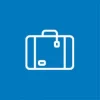Things can get pretty hectic just ahead of a vacation. Did you pack your medication? Should you get any inoculations before you travel? Is all the important stuff packed? Have you planned your travel route?
After making sure your health, luggage and travel situations are in shape, there is hardly time to go over your finances. But putting off financial check-ups ahead of your vacation can leave you in bad shape, and potentially turn your time off into a stressful experience.
Going over these simple financial tips ahead of your vacations will help you avoid unnecessary financial problems so you can focus on having fun.
1. Travel insurance
Many travel agencies and online booking sites offer short-term travel insurance when you make a booking. If you travel at least twice per year, an annual travel insurance policy may be the better choice.
A difference is made between insurance coverage for hazards that occur before your trip (trip cancellation coverage) and those that occur during your vacation (trip interruption and assistance coverage). Both types of coverage are often bundled in a single package.
Take care not to buy overlapping insurance coverage. Examples: If you already have an annual travel insurance policy, you do not need to get the travel insurance offered by the airline or travel agency. If your luggage is insured against theft by your household insurance policy, you do not need to get additional luggage insurance.
If you are paying for the trip using a credit card, check if your credit card gives you complimentary travel insurance coverage as a benefit. Nearly all credit cards which provide travel insurance coverage only do so when you use the card to pay for between 50% and 100% of the trip, depending on the credit card.
Get more travel insurance tips here
2. Travel bookings
The cost of flights, hotel stays and travel packages can change drastically from one offer to another. Fortunately, a lot of travel comparisons are available online, and comparing offers can save you a lot of money. You can learn more about finding cheap flights here.
3. Credit cards
When traveling, try to use your debit card (Maestro, PostFinance, V-Pay) to draw money, rather than a credit card. Credit cards charge very high fees for cash advances, especially when you use them to get cash outside of Switzerland.
You can use your credit card to pay for purchases while abroad, but make sure to use a credit card with low foreign transaction fees. These fees are clearly listed in the comprehensive moneyland.ch credit card comparison.
Some credit cards also offer travel insurance coverage. These benefits are shown in the unbiased credit card comparison tool.
If you are looking for specific credit card benefits, you should take the time to read the terms and conditions of the credit cards which you are interested in. You can learn more about credit card insurance benefits here.
4. Frequent flyer miles
Airline miles are a favorite travel savings instrument. It is worth knowing that you can also collect frequent flyer miles by using certain credit cards.
The number of miles you earn for your spending depends on the credit card you use. You can use the sort tools to filter credit card comparison results and find the credit cards with the most attractive miles earning rates. Get more tips on maximizing frequent flyer miles here.
5. Debit cards
As a rule, you should avoid making withdrawing money at ATMs using credit cards. Debit cards, on the other hand, provide an affordable and effective way to access your bank account and withdraw money while traveling. The Maestro card, powered by MasterCard, is the most popular debit card in Switzerland. Some Swiss banks also offer V-Pay cards from Visa, but these can only be used in some European countries.
Ask your bank about which ATMs you should use to withdraw money at your destination, in order to avoid paying high ATM fees. Alternatively, you can research this online or ask your travel agent. Many ATMs outside of Switzerland charge additional ATM fees when you withdraw money using your Swiss debit card. What’s worse, banks sometimes disguise fees by giving you a very poor exchange rate. In the worst case, you could lose up to 10% on the currency exchange. As a rule, avoid using non-bank ATMs, such as those operated by currency exchange agencies.
6. Buying foreign currency
Foreign currency fees – whether for debit card or credit card transactions outside of Switzerland, or for cash withdrawals at ATMs – are notoriously high. Aside from foreign transaction fees, almost all card issuers make additional money off you through lousy exchange rates. That leaves many travelers wondering how they can get foreign currency without being ripped off.
The rule of thumb is: In Switzerland, use your Swiss bank to exchange francs for major currencies like U.S. dollars, euros and British pounds.
If you need less-widely-used currencies, comparing rates is key because different financial services providers sell these currencies at very different prices. In many cases, you may come out saving more by using your debit card to withdraw local currency at ATMs while abroad. You can find more on this topic here.
7. Luggage insurance
Your luggage can be insured by either your household insurance, your credit card, or your travel insurance policy. Try to avoid paying for overlapping coverage.
In order to benefit from possible credit card luggage insurance benefits, you will have to pay for the trip (at least in part) using your credit card. Not all credit cards give you this coverage, and the benefits and coverage you get with those that do varies from card to card. You can find cards that offer this benefit by using the “Insurance: luggage” sort option in the credit card comparison.
Many travel insurance plans do not include luggage insurance coverage in the basic policy, but only offer this coverage as an optional rider for an additional premium. However, some travel insurance policies do include luggage insurance. Use the “Luggage insurance” filter and the “Luggage” sort option in the unbiased travel insurance comparison to find and sort policies according to the luggage insurance coverage they provide.
Many people overlook the fact that luggage is also insured by their household insurance policy, if the policy includes coverage for simple theft away from home. However, a 200-franc deductible normally applies. In most cases, the coverage is limited to 2000 francs, though some policies provide up to 5000 francs of luggage insurance.
8. Health insurance
When you vacation in European Union (EU) or European Free Trade Association (EFTA) countries, always carry your health insurance card with you for seamless emergency health insurance coverage.
Your obligatory Swiss health insurance covers your healthcare costs abroad, up to a limit of double the price of the same treatment in your canton of residence. That is adequate in most countries.
However, in non-EU countries with excessively high healthcare costs, such as the U.S., Canada, New Zealand, Australia or Japan, your basic health insurance coverage may not provide sufficient coverage for worst-case scenarios. It is also worth knowing that the costs of ambulance transportation and repatriation to Switzerland are not covered by compulsory health insurance.
An outpatient insurance policy can provide the extra coverage you need. The comprehensive moneyland.ch outpatient insurance comparison lets you filter and sort policies using the “Search and rescue abroad” and “Medical costs abroad” criteria. You can read more about health insurance for travelers here.
Alternatively, some travel assistance insurance policies also offer coverage for healthcare expenses outside of Switzerland. You can find these in the travel insurance comparison using the “Rescue costs”, “Return journey costs” and “Medical costs” filter and sort criteria.
9. Legal expenses insurance
If you are concerned about the possibility of getting entwined in expensive legal processes while on vacation, or just want to have your legal bases covered, there is one key point you should check before your trip: the countries covered by your legal expenses insurance. Many legal insurance policies provide worldwide coverage, but some do not. The amount of coverage you get also varies between policies.
The unbiased legal expenses insurance comparison by moneyland.ch makes finding the right coverage easy. Just use the “Coverage world”, “Coverage Europe” and “Coverage Switzerland” sort criteria to find policies which provide the coverage you need.
Avoid getting overlapping insurance. Some travel insurance policies and credit card insurance benefits include legal expense coverage.
10. Roaming
The costs of using your Swiss mobile service while traveling outside of Switzerland have gone down in recent years, but are still relatively high. Most Swiss mobile contracts come with horrendous roaming charges – especially for data connections.
If you plan to surf on your smart phone while on vacation, you will have to stay on the ball to avoid huge phone bills. Because smart phones are programmed to perform all kinds of data-devouring updates and other activities on their own, the only sure way to avoid fees is to deactivate your data connection altogether and stick to free or cheap local Wi-Fi connections for your online fix.
If you are not into the idea of being offline for any amount of time, you can get special upgrades from Swisscom, Salt or Sunrise which provide you with more affordable data roaming for a limited amount of time. Swisscom’s Infinity Plus package lets you use your phone abroad free of charge for a preset number of days, but you pay a fairly high price for the package itself.
The most affordable way to connect your mobile device is usually buying an affordable prepaid SIM package in the country you are vacationing in. Doing that lets you cut out roaming costs altogether.
More on this topic:
Swiss credit cards
Using credit cards to earn frequent flyer miles
Swiss travel insurance
Swiss legal expenses insurance
Swiss outpatient insurance comparison
Making purchases and cash withdrawals abroad
Health insurance: coverage for travelers









